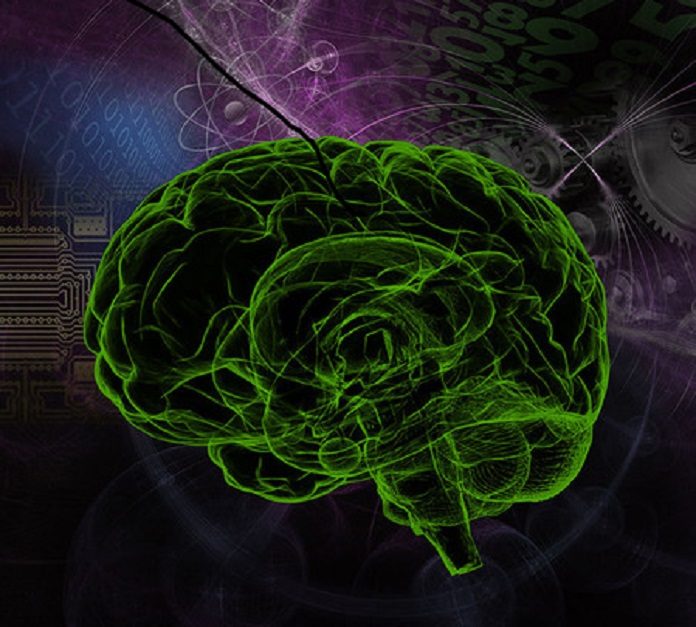If you’ve ever lied about your IQ to seem more intelligent, it’s time to fess up. Scientists can now tell how smart you are just by looking at a scan of your brain.
In a new study, using a newly developed machine learning algorithm Caltech scientists have shown that their new computing tool can predict a person’s intelligence from brain scans by functional magnetic resonance imaging (fMRI) of their resting state brain activity.
As such, a person’s intelligence can be gathered from patterns of movement in their brain when they’re not doing or thinking anything specifically—no math issues, no vocabulary tests, no riddles.
Ralph Adolphs (PhD ’92), Bren Professor of Psychology, Neuroscience, and Biology said, “We found if we just have people lie in the scanner and do nothing while we measure the pattern of activity in their brain, we can use the data to predict their intelligence.”
In order to train their algorithm to analyze complex patterns in the brain, scientists used data collected by the Human Connectome Project (HCP), a scientific endeavor funded by the National Institutes of Health (NIH) that seeks to improve understanding of the many connections in the human brain.
Scientists then downloaded the brain scans and intelligence scores from very nearly 900 people who had taken an interest in the HCP, fed these into their algorithm, and set it to work.
The algorithm precisely predict intelligence at statistically significant levels across these 900 subjects.
Julien Dubois (PhD ’13), a postdoctoral fellow at Cedars-Sinai Medical Center said, “The scans are coarse and noisy measures of what is actually happening in the brain, and a lot of potentially useful information is still being discarded.”
“The information that we derive from the brain measurements can be used to account for about 20 percent of the variance in intelligence we observed in our subjects. We are doing very well, but we are still quite far from being able to match the results of hour-long intelligence tests, like the Wechsler Adult Intelligence Scale.”
“Since the algorithm is trained on intelligence scores to begin with, how do we know that the intelligence scores are correct? We addressed this issue by extracting a more precise estimate of intelligence across 10 different cognitive tasks that the subjects had taken, not only from an IQ test.”
The study was conducted as part of an ongoing quest to build a diagnostic tool that can tell a great deal about a person’s mind from their brain scans. Adolphs and his colleagues say that they would like to one day see MRIs work as well for diagnosing conditions like autism, schizophrenia, and anxiety as they currently do for finding tumors, aneurisms, or liver disease.
Intelligence was chosen as one of the first test beds for the technology because research has shown that it’s very stable over time. That is, a person’s IQ score will not vary much over a period of weeks, months, or years.
The researchers also conducted a parallel study, using the same test population and approach, that attempted to predict personality traits from fMRI brain scans. An individual’s personality, Adolphs says, is at least as stable as intelligence over a long period of time. The personality test they used divides personality into five scales:
- Openness to experience: Preference for new experiences and ideas vs. preference for routine and predictability
- Conscientiousness: Self-discipline and thoughtfulness vs. spontaneity and flexibility
- Extraversion: Sociability and talkativeness vs. shyness and reservation
- Agreeableness: Friendliness and helpfulness vs. antagonism and argumentativeness
- Neuroticism: Confidence and predisposition to positive emotions vs. nervousness and predisposition to negative emotions
Dubois said, “However, it has turned out to be much more difficult to predict personality using the method the team used for predicting intelligence. But this is not surprising.”
“The personality scores in the database are just from short, self-report questionnaires. That’s not going to be a very accurate measure of personality, to begin with, so it is no wonder we cannot predict it well from the MRI data.”
Additional Caltech co-authors are Lynn K. Paul, a senior research scientist, and graduate student Yanting Han. Funding for the studies was provided by the National Institute of Mental Health, the Tianqiao and Chrissy Chen Institute for Neuroscience at Caltech, the Carver Mead New Ventures Fund, and a grant from the Brain & Behavior Research Foundation.
Papers describing the two studies, titled “Resting-state functional brain connectivity best predicts the personality dimension of openness to experience,” and “A distributed brain network predicts general intelligence from resting-state human neuroimaging data,” are available online through bioRχiv; their publication in, respectively, Personality Neuroscience and Philosophical Transactions of the Royal Society, is pending
